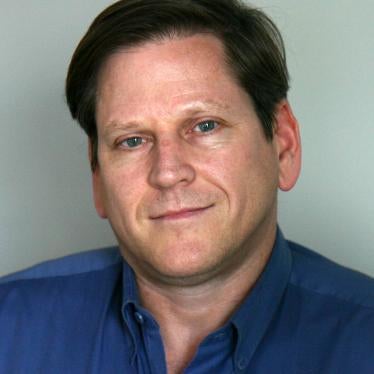KUALA LUMPUR: The Human Rights Watch (HRW) has delivered its harshest criticism of Malaysia's human rights record to date by describing Malaysia's process of employing migrant workers as an "excellent system of human trafficking".
The HRW noted that under the current system, companies are not responsible for sending unwanted migrant workers back to their countries of origin.
The desperation of these workers to pay off the hefty debts they have incurred during the employment period, entraps them in a system of debt bondage. And debt bondage, according to the HRW, is human trafficking.
This latest criticism follows Tenaganita's pronouncement that Malaysia is among the leading countries in the estimated US$13 billion (RM41.2 billion) a year global black market involving human trafficking.
Phil Robertson, the deputy director of the HRW Asia division, pinned the root of the problem on the recruitment agencies that act as middlemen.
"You couldn't have devised a worse system if you tried," he said. "Not only is it (recruitment system) rife with corruption and human rights abuses, it also outsources the responsibility of hiring the migrant workers to shadowy employers and prevents the establishment of any systematic regulation."
Robertson also dismissed the Home Ministry's promise to review the system of using recruitment companies to hire migrant workers as "not credible at all".
"Most of these companies are fly-by-night operators," he said. "The ministry must study what incentives the system encourages and from there introduce a systemic reform of bringing migrant workers into the country."
"The fact is that Malaysia cannot run its economy without migrant workers. They have been integrated into the production, manufacturing, agricultural and family lives of thousands of Malaysians. To continue treating them so shoddily is also extremely short-sighted."
This criticism is likely to call attention to Malaysia's recent election to the United Nations Human Rights Council (HRC) barely three months ago.
Malaysia's inclusion in the council drew condemnation from various international quarters but had the backing of others like HRW, which viewed it as an opportunity to push Malaysia to clean up its poor human rights record.
Robertson, who was in Kuala Lumpur last week to speak on human trafficking at the 15th Malaysian Law Conference, also spoke to FMT on Malaysia's seat on the HRC and the role of the Human Rights Commission of Malaysia (Suhakam).
FMT: Do you think Malaysia takes its seat on the UNHRC seriously?
Robertson: It's hard to tell. My sense of Malaysia's motivation is that it wants to be seen as a progressive modern nation that understands the interest and demands of the international community. But there almost seems to be a double game here. The face that Malaysia projects to the international community is very different from what it projects to Malaysians.
Even Malaysia's election campaign was very interesting. All the nominees must draw up a set of pledges of what they will do if they are elected to the council. In Thailand, the Ministry of Foreign Affairs had a big party where its minister and prime minister handed out pamphlets detailing Thailand's pledges to the guests.
In Malaysia there was nothing. In fact, local human rights organisations weren't even sure whether Malaysia was really running. And they weren't able to get a copy of the pledges that Malaysia was making to other countries. HRW had to go to another mission at the United Nations in order to get a copy of the pledges. It was almost like a stealth campaign.
So time will tell. HRW is glad Malaysia is on the council but it's not a free ride. Malaysia needs to show some serious intent and if it doesn't within a year or two from now, then it will have some explaining to do.
What is Malaysia most serious human rights violation?
The most egregious continuing violation is preventive detention and I'm not just talking about the Internal Security Act (ISA) but also the Emergency Ordinance Act (EOA) and the Dangerous Drugs Act (DDA).
It is very disturbing when someone who is arrested on a criminal charge is released by the court but only to be re-arrested as soon as he walks out. It's almost like a double jeopardy violation. The fact that the court and the law enforcers use two separate laws is of significant concern.
In your opinion, is Suhakam relevant?
Yes. I've had a very good meeting with the new Suhakam commissioners and I'm impressed by their openness. I'd say that they are cautiously optimistic.
But for things to really change the Malaysian government needs to start viewing Suhakam as a valued partner. Suhakam can bring a lot to the table if it is respected and given a proper chance. There are many different human rights issues where the government doesn't have the expertise and it should look to Suhakam for help. And Suhakam should also be strong and consistent in its position.
How would you rate human rights in Malaysia?
I've long learnt that rating countries vis-a-vis each other just gets you into trouble so I will not give a rating. I will say, however, that the problem with Malaysia is that there's always a promise of something better but there's very little follow-up.
The governance is so opaque that it's very difficult to see and understand what is going on. I go back to the stark contrast between appearance and reality. Malaysian ministers talk differently in Washington from what they do at home.
The government should have more faith in the people. It must understand that they are not radicals but people who want to be heard, participate in governance and be involved in decision-making. The government must trust its people more and one way of doing it is to respect their human rights.
Phil Robertson is Deputy Director of the Asia Division at Human Rights Watch.







